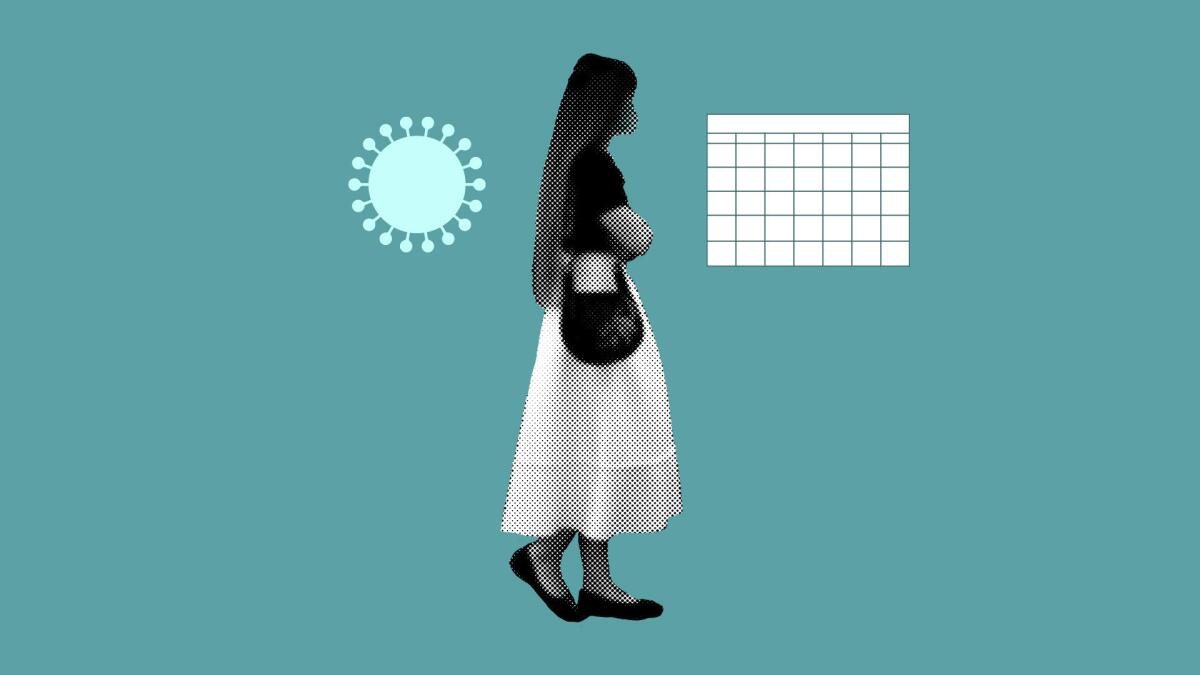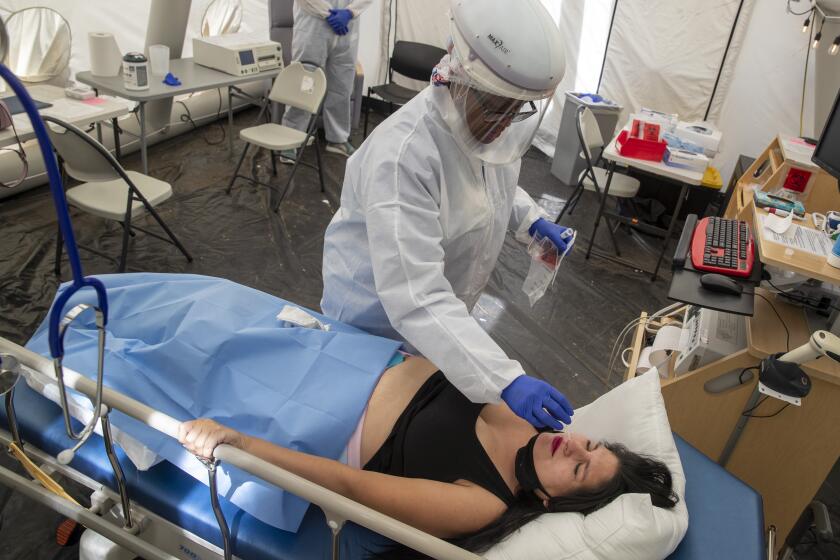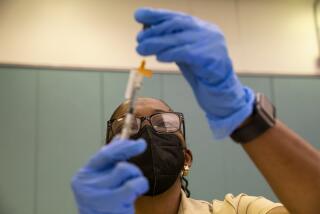Periods and COVID-19: Do vaccines affect menstrual cycles?

- Share via
Can COVID-19 vaccines affect my period?
Scientists don’t know the answer, but they’re starting to study the issue.
Vaccines are designed to activate your immune system, and some experts have wondered if that could temporarily disrupt menstrual cycles.
So far, reports of irregular bleeding after getting a COVID-19 vaccine have been anecdotal. And it’s hard to draw any direct links to the vaccines since changes could be the result of other factors including stress, diet and exercise habits.
Two studies of hospital workers bolster the case that COVID-19 vaccines really do reduce the risk of a coronavirus infection.
There’s also a lack of data tracking changes to menstrual cycles after vaccines in general.
If scientists do eventually find a link between the vaccine and short-term changes in bleeding, experts say that would be no reason to avoid getting vaccinated.
“The benefits of taking the vaccine certainly way outweigh putting up with one heavy period, if indeed they’re related,” said Dr. Mary Jane Minkin, a gynecologist and a professor at the Yale University School of Medicine.
Researchers recently launched a survey to begin gathering data. The findings won’t determine whether there’s a relationship between COVID-19 vaccines and menstrual changes, but they could help shape further research, said Katharine Lee, one of the researchers, who is based at Washington University in St. Louis.
Pregnant women with COVID-19 face a significantly higher risk of death and of complications for themselves or their newborns, a new study finds.
Dr. Jen Gunter, an obstetrician and gynecologist in the San Francisco Bay Area, said a link is possible, since the uterine lining, which is shed during menstruation, contains immune cells that help protect the uterus.
There’s no evidence that any vaccines — including COVID-19 vaccines — affect fertility, according to the U.S. Centers for Disease Control and Prevention and the American College of Obstetricians and Gynecologists.








